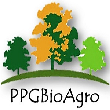Banca de QUALIFICAÇÃO: CLEOMAR ATILIO CIGOLINI
Uma banca de QUALIFICAÇÃO de MESTRADO foi cadastrada pelo programa.DISCENTE : CLEOMAR ATILIO CIGOLINI
DATA : 28/09/2022
HORA: 08:00
LOCAL: Web Conferência - Google Meet
TÍTULO:
THE NATIONAL SCHOOL FEEDING PROGRAM ITS LIMITS AND POTENTIALITIES FOR THE DEVELOPMENT OF FAMILY AGRICULTURE IN THE SOUTHERN AMAZON
PALAVRAS-CHAVES:
Family Agriculture. Public financing. Sustainable development. Sustainability. Food production.
PÁGINAS: 50
GRANDE ÁREA: Ciências Sociais Aplicadas
ÁREA: Economia
SUBÁREA: Economias Agrária e dos Recursos Naturais
ESPECIALIDADE: Economia Agrária
RESUMO:
The scope of the research is based on family agriculture and the highlighting of public policies that support its development, which promote the generation of jobs and income and provide food and nutritional security for the population. An example of public policy is the National School Meals Program (PNAE), which aims to combat food insecurity in schools. In addition, as expressly provided in Article 14 of Law No. 11947/2009, a minimum of 30% of its resources must be used to purchase products from family agriculture. Given this scenario, the general objective of the study, seeks to discuss the limits and potentialities of the National School Meals Program as a driving force for promoting the development of family agriculture in the southern Amazon, in the municipality of Alta Floresta, MT. In this sense, the study was divided into two chapters, in which, the first aims to discuss properly the PNAE, the limits and potentialities for its realization and the second chapter, characterize the socioeconomic profile of family farmers who are assisted by PNAE. Thus, due to the multidisciplinary nature of the research, different methodologies were used, being the bibliometry, as a statistical and quantitative technique that measures the rates of production and dissemination of scientific knowledge, called Bibliometrix in R programming language, with data from the Scopus Databases, besides the collection of secondary data from the city hall of Alta Floresta, Mato Grosso, and the literature review. In the second part, it was based on the use as a strategy, the adoption of a descriptive research with a qualitative approach, of exploratory character, outlined as a case study with data obtained from the interviews of the UNEMAT Extension Project, besides using bibliometry, secondary data and the bibliographic review. Thus, the results observed by the research, between the years 2011 and 2021, show that the municipality has found it difficult to achieve the minimum rates as defined in the legislation, staying on average 17.3% of resources are invested in the acquisition of products from Family Agriculture. There was a low variation in the transfers from the FNDE to the municipality, on the contrary, one accumulated 58.89% in inflationary losses. As for the results of the second chapter, they are not yet finalized. Finally, the study proposes some actions to the actors involved to achieve the goals proposed by law and offer better conditions for school meals and family farmers.
MEMBROS DA BANCA:
Presidente - 117161001 - SANTINO SEABRA JUNIOR
Externo ao Programa - 132027001 - EDGLEY PEREIRA DA SILVA
Externo ao Programa - 131919001 - RAIMUNDO NONATO CUNHA DE FRANCA
Externo ao Programa - 103029041 - WAGNER GERVAZIO



